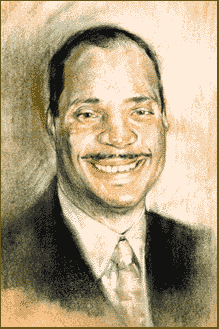INTERVIEW
The Future's Pristine
Oliver Velez
Of Pristine.com
by Jayanthi Gopalakrishnan
Oliver L. Velez is the chairman and cofounder of Pristine.com, a
leading online educational portal for active, self-directed traders. He
is also the chief editor of the site's flagship product, "The Pristine
Day Trader." A respected financial professional and a sought-after
speaker with a successful 14-year track record, Velez is recognized as
one of the pioneers in the daytrading industry.
As a professional trader, Velez built a formidable reputation for
his trading skills. He established Pristine in September 1994 as an educational
site, making stock recommendations, but also explaining when, how, and
why to buy a stock. Today, 63,000 individuals in more than 62 countries
use Pristine's services.
Velez is widely known for his trading skills and specialized knowledge
of technical analysis (that is, predicting price movement through chart
patterns and market indicators). Velez has advised professional traders,
money managers, mutual funds, and hedge funds, and is recognized as the
"professional's professional." With all that in mind, what does
Velez think about the coming times for the markets?
STOCKS & COMMODITIES Editor Jayanthi Gopalakrishnan conducted
this interview with Oliver Velez via telephone on December 31, 2002

We are not trading companies, stocks, or fundamentals. We're trading people, those who are moved primarily by fear
and greed.
How did you get interested in short-term trading?
I started off as an accountant and really did not like one moment of
that experience. What was really fascinating to me as an accountant, though,
was first, I was interested in accounting because it was primarily the
language of business, and I always had a passion for business. But I became
discouraged with many of the practices in the accounting field. What I
was told to do as a low-level staff accountant opened my eyes to the fact
that by the time various rules and legal accounting loopholes are taken
advantage of, the proximity to what is true and what is real is not there,
or is very small. That realization led me to my own market activities.
This was some 15 or 16 years ago.
What led you to analyze the markets from a technical point of view?
As an accountant, I realized that any report, even if it does reflect
reality, is a snapshot of a company's position in the past. When you shorten
your time frame in the markets, a snapshot of the past really has little
relevance to the stock or company's current position. So the importance
from a short-term perspective on fundamentals, even if they are accurate
and correct, is very small to a short-term trader.
So your time as an accountant made you come to this conclusion?
My dealings in the accounting world made me realize this more so than
-- in my opinion -- most individuals without an accounting background. I
decided that a technical approach would be the best for me. If every single
trade that takes place hits the tape, the collection of trades would indicate
the sentiment of the market participants. It would tell me how the bulls
and bears feel about a certain stock. And every belief regarding the fundamentals,
the company's position, and the prospects for the company, would be reflected
in this collection of trades. So it became evident to me that from a technical
perspective, the charts are the truth. They do not lie. Charts are never
wrong. People's opinions about stocks can be wrong, and those opinions
are reflected in the charts, but charts themselves simply do not lie.
...Continued in the March 2003 issue of Technical Analysis of STOCKS
& COMMODITIES.
Excerpted from an article originally published in the March 2003
issue of Technical Analysis of STOCKS & COMMODITIES magazine. All rights
reserved. © Copyright 2003, Technical Analysis, Inc.
Return to March 2003 Contents
